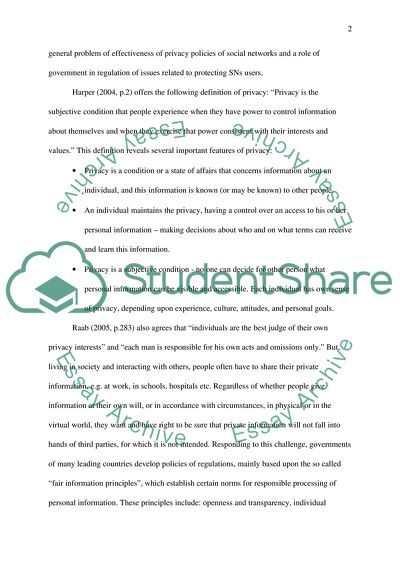Cite this document
(Issues of Governance and Privacy on Facebook Essay, n.d.)
Issues of Governance and Privacy on Facebook Essay. https://studentshare.org/politics/1742739-issues-of-governance-and-privacy-on-facebook
Issues of Governance and Privacy on Facebook Essay. https://studentshare.org/politics/1742739-issues-of-governance-and-privacy-on-facebook
(Issues of Governance and Privacy on Facebook Essay)
Issues of Governance and Privacy on Facebook Essay. https://studentshare.org/politics/1742739-issues-of-governance-and-privacy-on-facebook.
Issues of Governance and Privacy on Facebook Essay. https://studentshare.org/politics/1742739-issues-of-governance-and-privacy-on-facebook.
“Issues of Governance and Privacy on Facebook Essay”. https://studentshare.org/politics/1742739-issues-of-governance-and-privacy-on-facebook.


